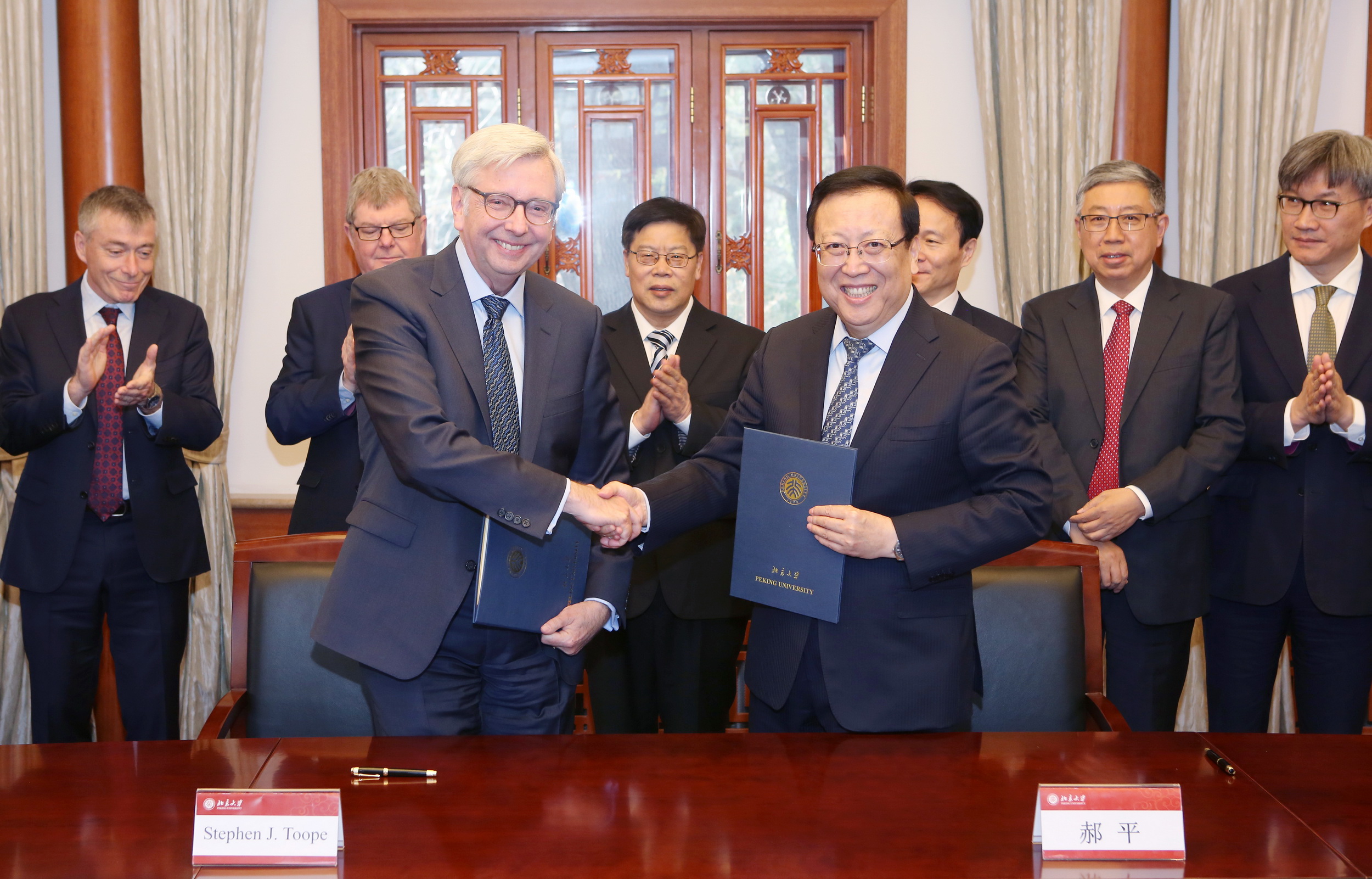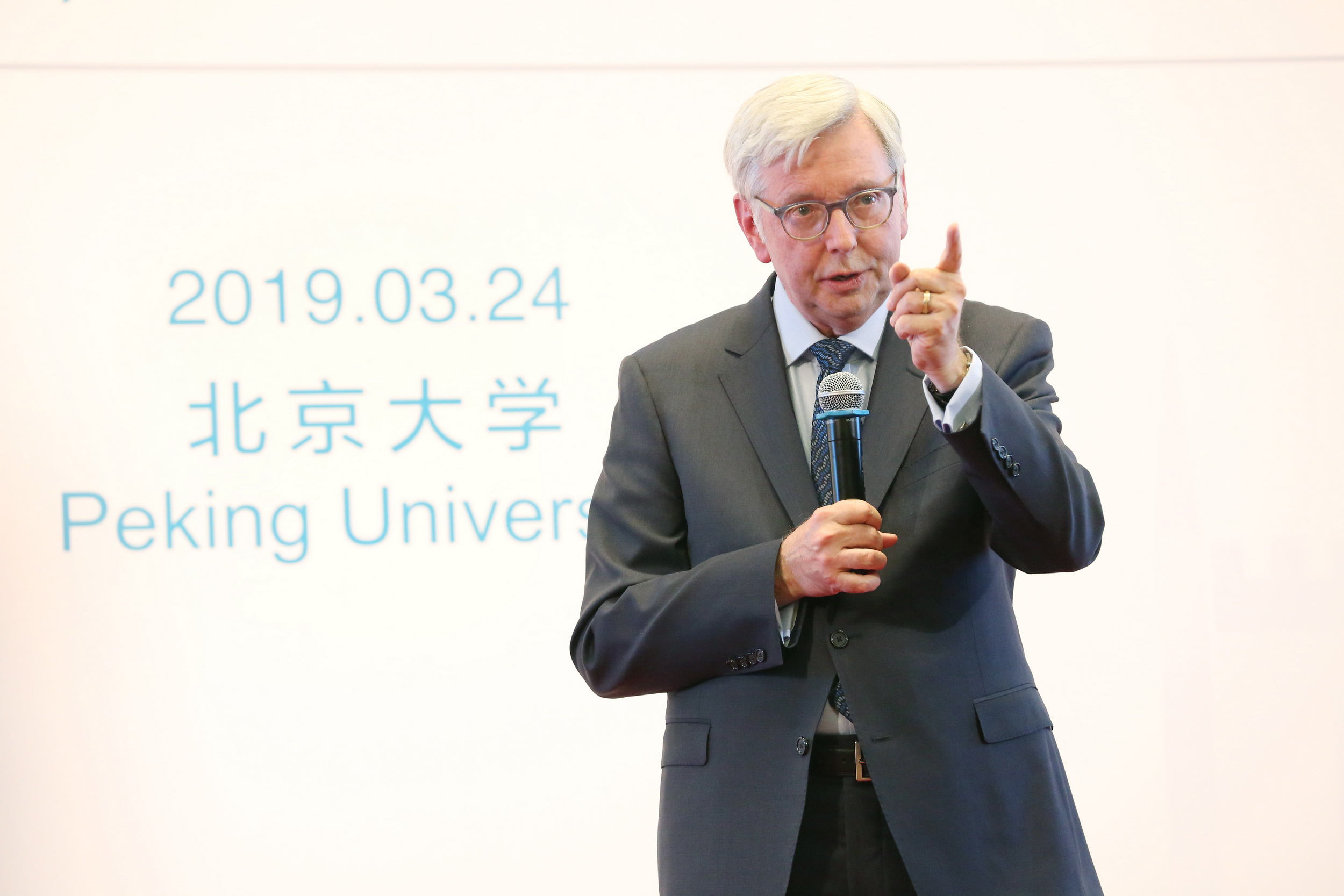Stephen J. Toope, vice-chancellor of University of Cambridge, visited Peking University on March 24, following Harvard University President Lawrence Bacow’s visit on the 21st of March. Toope was greeted by Peking University President Hao Ping and PKU Council Chairman Qiu Shuiping at Linhuxuan, where both sides held a productive talk and signed a memorandum of understanding (MoU) to jointly advance bilateral collaboration.
 At the MoU signing ceremony
At the MoU signing ceremony
Hao Ping exchanging views with Toope
Toope extended his appreciation to Peking University for its hospitality and echoed that with the signing of MoU, both sides will certainly create a more comprehensive relationship in the years to come. Toope then went to the Arthur M. Sackler Museum of Art and Archaeology where he had a glimpse at China’s ancient exhibits and learned more about the Chinese civilization. He also headed to Yingjie Exchange Center and delivered a public speech titled "Global Universities in an Age of Anxiety".
Toope giving his speech
In his speech, Toope argued that critical and independent thinking and collaboration, across borders, disciplines and institutions, have never been more crucial than they are now, mainly because we live in times of great complexity and the challenges we face are global. He also believed that global universities must seek connection, communication and collaboration if we wish to see changes that will make the world a better place for everyone, and that’s why University of Cambridge is engaged around the world in crucial, life-saving research projects that tackle microbial resistant tuberculosis, inclusive education and sustainable agriculture. Toope added that our diverse perspectives enable us to see a problem from multiple angles and to imagine and design solutions, thus explaining why Cambridge needs to collaborate with institutions in China and why Cambridge is hoping to strengthen partnerships with great universities such as Peking University. “Through knowledge, through connection, though collaboration, we have the capacity to discover the new lenses through which we must see our future. Together we can find the paths through which we can lead each other out of this age of anxiety,” Toope emphasized.
Over years, Peking University and University of Cambridge have maintained an intimate partnership. Since 2001, University of Cambridge has sent students whose subject area lies in Chinese Studies to PKU for academic exchanges every year. Meanwhile, Peking University also dispatches students to University of Cambridge for the summer school annually. As the collaboration between these two elite universities gains momentum, it is fair to say that China-UK cooperation, especially in the fields of education and culture, is bound to enjoy a brighter prospect.
Reported by: Huang Weijian
Edited by: Zhang Jiang

